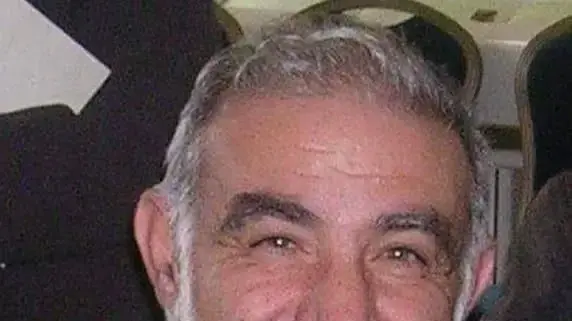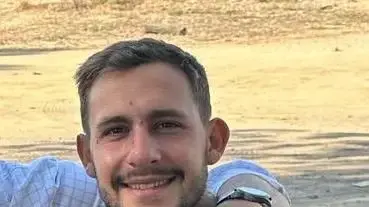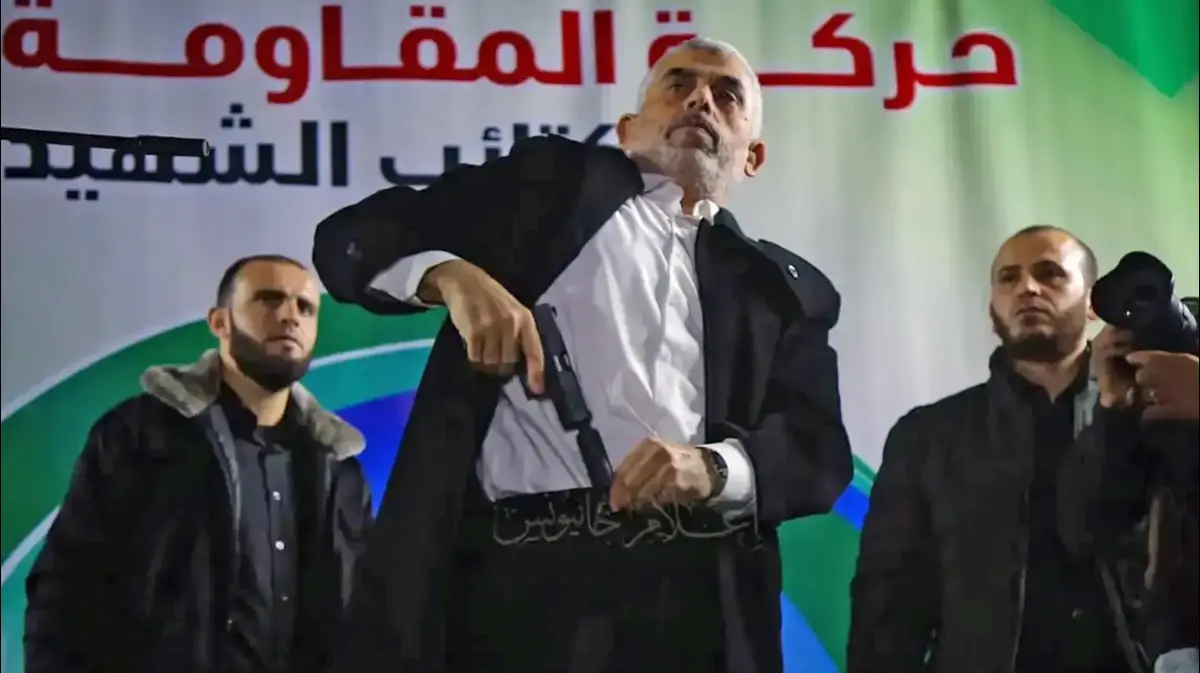For Holocaust survivors who lost their families in the camps, immigrated to Israel and educated their sons in the Israeli systems - this is a week consisting of a year • The corona closure forced upon them by being at risk, prevents them from sharing the pain with their friends:
"Isaac fulfilled his dream of being a paratrooper - and was killed." Shandy Miller // Photo: Oren Ben Hakon
"It is very hard for me to tell about Isaac. I have no problem telling my parents and brothers who were murdered in the Holocaust, and there is no Saturday afternoon that I do not tell my grandchildren or grandchildren the story of my family. But Isaac I cannot speak," Sarah (Shandy) admits Miller.
At the age of 90, Sarah is part of a considerable public of senior citizens in Israeli society, who, along with health problems resulting from their advanced age, face double loss - as Holocaust survivors who lost many members of their families, and as bereaved parents who lost a son in Israeli wars or attacks. In some cases, they also face a feeling of intense loneliness due to the heavy risk of the Corona virus, and the last week - between Holocaust Day and Memorial Day - has become extremely complex for them.
Shandy has been living in the same house for 71 years, which Arabs abandoned in the War of Independence. "Even the bullet holes are still here." She was born in Czechoslovakia, and after the occupation was brought into the ghetto, where she wrote a diary (recently published by the German "child") in which she described her feelings. She was then deported to Auschwitz and "To this day I can't board a train in Jerusalem, it reminds me ...". After the Holocaust, when she was only 17.5 years old, she married and immigrated to Israel in 1949 with her husband, Michael-Elhanan, and her infant daughter. In Israel, the two brought two more children into the world. The eldest son was Isaac.
As a member of a religious family, Isaac's course of study was clear. He attended Horev Elementary School in Jerusalem, and then went on to attend Yerushalayim for Young People (Yitzhak) and Yeshiva of the Rabbi Center. In July 1971, he joined Nahal together with Keren Shlomim, who was a member of the Ezra youth movement, to which he belonged, On the blades.
From the kibbutz, Yitzhak left to hold Kfar South and operational employment. His friends later said he was a key figure in his exemplary behavior. "Even during the most difficult times of service, being troubled and tired, it was not a day that he did not often devote to the Torah, and until his last day he convened ministers for prayer at the base and even in the field, and he himself - made sure to observe all the commandments," the Yizkor website says of him.
"The situation was not quiet in Jericho," says Shandy about the circumstances of his fall. As a squad commander in the parachute Nachal, Yitzhak was stationed in the area and commanded his soldiers. Isaac and another soldier were killed at the scene. "It was an accident. He was standing upstairs with another soldier, and the rest were inside, when the IDF turned over. I was asked if I wanted to know exactly how it happened and I said no, what would it help me? He was so young, 20.
"I thought I wouldn't stay alive for a few hours after he fell, I thought I'd go right after him. I got it very hard. It's awful. I came home, to Slovakia, and again I was 15 in the ghetto. I was 39 when Isaac was killed. "We were so happy about the kids and their development, we made sure they were good students, and then this disaster happened. Suddenly I had to start all over again."
In an unusual move in those days, Wendy asked Isaac Yitman on the Mount of Olives. "He was the first soldier to be buried there so we could be buried next to him, because I don't have the graves of my family."
According to Shandy, her personal Holocaust story began only to be told following the son's fall. "When we arrived in Israel we wanted to talk about Auschwitz but nobody wanted to hear us. Everyone was talking about the siege in Jerusalem, so we were silent. We couldn't connect with anyone except the people who were in the Holocaust. After Isaac fell, I started talking. My brothers were murdered only because they were Jewish , While Yitzhak wanted from a small age to be a paratrooper and managed to realize his dream in the Israeli Defense Forces, but was killed.
"If you die - then for the state"
"Haim Meir Avner, who was killed this week in the explosion of a car bomb near Metula, was an extraordinary figure in the belly of the most ultra-Orthodox in Jerusalem," a journalist described the bereavement that struck the Avner family on March 10, 1985. Keeping the commandments. On the other hand, he knew how to integrate prayers and religious studies into small matters.
"Sports, for example, were his great hobby. Bella's son, the only Holocaust survivor in her family who carries a number on her arm, the son of Hanoch, a wise pupil born in Poland. The other day, two days after Haim was brought to rest, the mother could not hold back her tears." "They made us there in Auschwitz, after German soldiers followed us with weapons in hand and pointed their guns at us. I was most proud to see my boys holding weapons proudly," she said.
In early March, moments before the Health Ministry's severe restrictions on the Corona virus were imposed on the public, the Avner family managed to ascend to a grave of life on Mount Herzl. They are already commemorating Memorial Day in the home of Moti, Haim's brother, in Efrat. Like Wendy, Bella also lives in the same house where the family lived on Zephaniah Street in Jerusalem, but because of her corona, her daughter, Rebecca, who lives with her, decided to move until the epidemic ended in the fireplace.
"Haim Meir was a handsome young man, gentle and kind," says Bella (94). "All he could do for a human was in him. I miss him very much." She doesn't like to talk about the Holocaust, the awful period in Auschwitz, but the narrator's carving on her arm tells a wordless story. In her older age, the stories of her past life mix with one another, like the longing and bereavement.
It happened in the north of the country in March 1985 when Haim, a reserve Safari truck driver, made his way toward the security zone in southern Lebanon with dozens of soldiers behind, as part of a convoy that included four trucks and was accompanied by two jeeps. "He had gone to the reserve less than two weeks earlier. Mutti had married just days before," Sister Rebecca recalls.
Bella says of her son's dedicated nature to the army: "I once drove to Metulla to pick him up, and after we got home he changed clothes, went to bed very tired. After fifteen minutes, an officer came and told us, 'We were in trouble, called from one of the positions they had run out of. Someone has to go. "Straight life jumped up and said," I'm off. "The officer told him," You shut up, don't even dare talk, you've been for so many hours, you're not going anywhere, "and Haim replied," Don't tell me what to do, I Traveler. He was always willing to volunteer for any mission. "
Rebecca: "Haim would come from Lebanon, see the demonstrations that were against the service there and go crazy. He would say 'Have you seen a people like that, half of whom is fighting for his existence and half demonstrating against him? I ask that if anything happens to me in Lebanon, you will not blame Begin or You are Sharon. "Two weeks later he was killed."
Haim's convoy was traveling on the road from a calf gate in Metula towards Marge Ayun, when suddenly the fighters who were driving the jeep at the head of the column spotted a red van. They suspected the driver and ordered him to drop to the sidelines. He obeyed, stopped the vehicles near the Nahun Ayun bridge, but when the second truck passed, the truck exploded. From the large blast, the truck in which he was driving was flying in the air and it caught fire. Twelve soldiers were killed.
The press of those days was amazed by the story of life and his family, an ultra-Orthodox and Zionist family. Rebecca pulls out a book in memory of the brother and reads from an article: "On Zephaniah Street in Jerusalem the predominant color is black. At the end of the street, near the 68th house, the landscape changes suddenly. Something unusual that has not been seen for many years.
"A military vehicle is parked near the house. Inside the house, many people, secular, ultra-Orthodox, of all the shades of the arch are pushed into it. The reason lies in the wall at the gate - Haim Meir Avner fell while performing his job. An IDF soldier on Zephaniah Street is more than exceptional. Many of the calls came out not to enlist in the army, but today, in a time of deep sorrow for life's death, one of the pain is opposed by retirees, Zionists and disbelievers in Zionism, the ultra-Orthodox and the secular. "
Bella finds it difficult to describe her feelings. Speaking at Yad Vashem every year. "My mother is very strong, and with all the hardships she went through, with all the pain, she has immense pride in having her son killed here, defending the state, and not there by a random shepherd. She says her son gave his blood for the state, and if he's already doomed to die - then so. "
"Days of Sorrow - and of Unity"
Jacob Schwartz is also not easy these days, between Holocaust Day and Memorial Day. He was born in Yugoslavia, and when he was 13, the Nazis captured the country and his father was taken from the family. He was later deported with his mother and two sisters to the ghetto and from there to Auschwitz. "Me and my sisters Mengele sent to the right, but my mother held my sister's little daughter in hand and Mengele sent her to the left. My older sister saw that Mom went somewhere else. She ran to her and went with her." It was the last time he saw them.
For years, Schwartz has toured from place to place, doing forced missile production in favor of the German war machine. At the end of the war, he was sent to a death march and abandoned with his comrades by the Nazis who fled. He reunited with his uncle in Budapest and from there he moved to his hometown in Yugoslavia, where he married and brought his first son into the world. He served in the army for a year and a half, and when he saw an ad in the newspaper "Establish a State for the Jews," he decided to immigrate to Israel.
The bereavement hit the Schwartz family's home on October 28, 1973, four days after the official end of the Yom Kippur War. My father, the son of Jacob and Judith, was called to his unit at the beginning of the war, just months after the birth of his eldest son, Seagull, and sent to fights in Sinai. After the days of heavy fighting, his jeep hit a mine and he was killed in an explosion.
"Because of my son he was killed," Yaakov said in tears. Initially, my 22-year-old father was not called to reserve duty. "He kept asking why they weren't recruited," the father recalls. After the first three days of the war, during which he spent nights with his father, who worked as a fisherman in Tiberias, Jacob told him: "If you are not quiet and want to enlist - go to the city officer and find out." The next day my father performed his father's instruction, and was sent to join the forces in Sinai, where he found his death.
Due to their advanced age, the Holocaust survivors are not leaving their homes these days and are forced to recall some of the horrors that have passed. "It's not a simple feeling," says Wendy, "it's very hard to be on Holocaust Day and Memorial Day alone. I don't have many friends and one older than me and can't hear. Now we're all alone and can't speak. They say I'm strong, but it's also hard to be strong." .
Bella is not aware of the virus, but it is probably the longest period of time she has not been staying in her home in Jerusalem ever since. "How to cope in such a year? It's very difficult," says Moti Bena. "We live our own memory, but Memorial Day always gave everyone a feeling together - and suddenly you shut yourself up."
And Rebecca her daughter adds: "We have been living it all year. I always say that I want Holocaust Day and Memorial Day to be not just days of grief, but also of unity, of something collective. All the people as a single family."

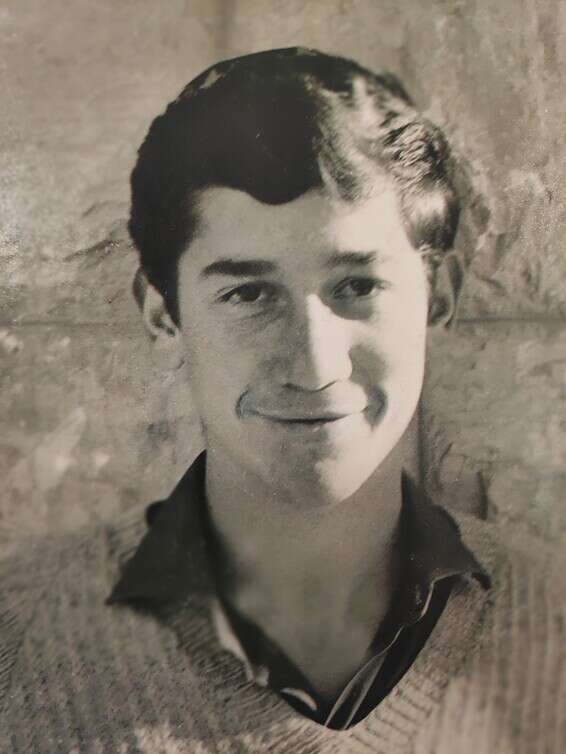
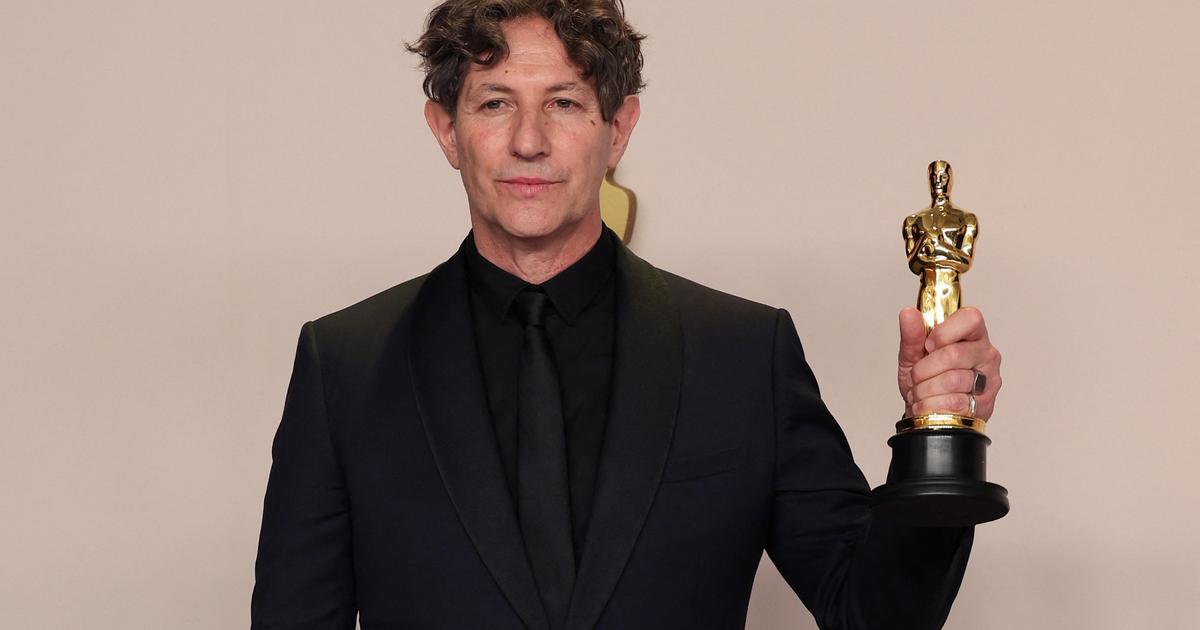
/cloudfront-eu-central-1.images.arcpublishing.com/prisa/7C3LUM4R75AU5MMLTKFXM4GDUA.jpg)
/cloudfront-eu-central-1.images.arcpublishing.com/prisa/OFIE3IOCHJH4RI645WWWIXYPFM.jpg)
